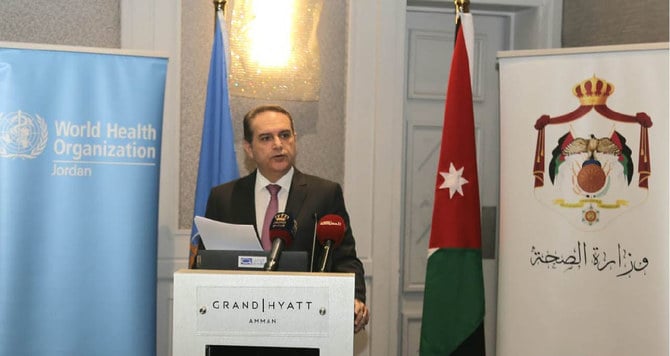.Approach targets malnutrition, obesity, micronutrient deficiencies and diet-related diseases
Jordan’s Ministry of Health launched the country’s 2023-2030 National Nutrition Strategy on Sunday in collaboration with the World Health Organization, Jordan News Agency reported.
The approach seeks to improve the nutritional status of all groups in Jordanian society to prevent malnutrition and obesity, as well as diet-related noncommunicable diseases.
It comes within the royal vision of achieving economic and social development objectives.
During the launch ceremony, Health Minister Firas Al-Hawari said that Jordan has made significant nutritional advances in recent decades, citing progress in addressing childhood malnutrition as evidenced by low prevalence rates of stunting and wasting.
Hawari also noted the government’s initiative to enrich wheat flour with iron and other nutrients in order to combat the spread of iodine deficiency and severe anemia.
According to the minister, a national study conducted in 2019 to evaluate micronutrient deficiencies and the nutritional status of Jordanians and Syrian refugees found a decrease in the prevalence of anemia and Vitamin A deficiency among children under the age of five, reaching 19 percent and 8 percent, respectively.
Child stunting was recorded at 7 percent, and wasting at less than 1 percent.
However, the study revealed that 63 percent of the population was vitamin D deficient, while 11 percent and 19 percent were folic acid and vitamin B12 deficient, respectively.
The study also found that the prevalence of adults recording an overweight or obese BMI was 59 percent.
“Appropriate nutrition is vital to human health and a fundamental right. Changes in diets and lifestyles in the countries of the Eastern Mediterranean region led to the spread of unhealthy dietary patterns, resulting in an increase in obesity, diet-related noncommunicable diseases, low exclusive breastfeeding rates and micronutrient deficiencies,” WHO Representative in Jordan Jamila Al-Rabi said.

